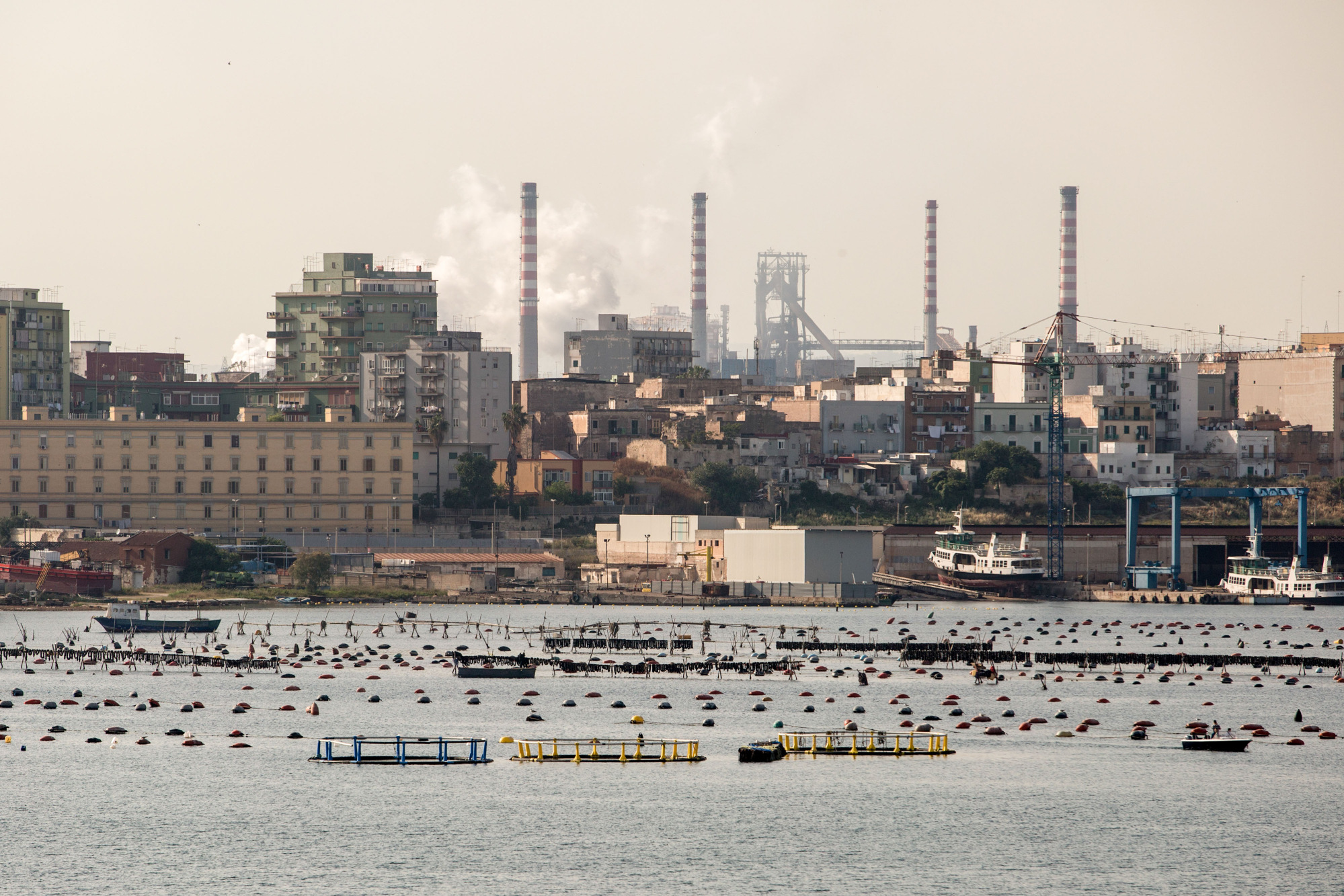The European Court of Justice said this week that a massive steel plant in the south of Italy must close if it is detrimental to the environment and the health of local communities. The ruling could have a big impact on the energy transition.
On the heel of Italy’s boot, a giant slumbers. The Taranto steelworks was once the most productive in all of Europe and a job lifeline for tens of thousands of workers in an impoverished part of the country.
But it has fallen on hard times. It was taken into government administration earlier this year after €3 billion in debt accrued.
The plant has also been hit with numerous court cases that claim its polluting manufacturing processes are wrecking the environment and putting people into early graves. The European Court of Human rights ruled last year that Italy had failed the people living near the facility.
Earlier this week, the European Court of Justice delivered its verdict on a case referred to it by a local court in Milan about the plant and whether it should be shut down on human welfare grounds.
The ECJ decided that if it is proven to be damaging to the environment and human health, then under EU law, the Taranto steel works will have to close.
Italy’s authorities have issued new operating permits based on predicted emissions rather than actual emissions, in what the court said is a flawed process.
Conversely, the plant’s operators claim that figures used in the legal case to demonstrate the facility’s emissions impact were outdated and that recent investments have brought the steelworks up to code.
It will be up to the Milanese court that referred the case to the ECJ to now decide whether operations should be suspended or not.
Regardless of what ruling is issued there, the ECJ has already set a rather significant precedent by confirming that environmental and human health should both be paramount in granting and renewing licences for polluting facilities.
Alternative technologies now exist for most manufacturing and power generation needs. So if legal challenges and rulings make it too expensive to keep facilities like the Taranto plant running, then operators will have to think long and hard about what they want to do next.
The cowardly short-term option is shut up shop and relocate somewhere else. European standards are becoming tighter with every passing year but in other jurisdictions, rules are often less strict and turn a blind eye to bad practices.
But that logic is no longer water tight. Not only is the rest of the world slowly but surely jumping on the human health bandwagon – shock! People in other parts of the world want to breathe clean air and drink clear water – but there is also the economic argument.
The EU has implemented a carbon border tax known as the CBAM, a new policy that will slap charges on certain imports that do not adhere to certain green standards. So scurrying off somewhere else to keep making cheap dirty steel is no longer an option.
Not if plant operators want to sell that product in the lucrative European market anyway.
So the other brave, admittedly expensive, option is for companies to clean up their act, to invest in modern technologies and to start retraining workforces now.
Steel can technically be decarbonised rather easily. Whether that is through using zero carbon electricity to power furnaces that reuse scrap metal, or going a step further and using hydrogen to produce virgin steel.
In Sweden, developers have chosen to go with the second option and have engaged with the local community to make sure that the new plant meets their needs and provides long-term secure jobs.
In Wales, Indian firm Tata missed a trick by waiting too long on government funding that never arrived in the quantities needed to make a difference. That means that thousands of jobs will be lost at its Port Talbot plant while an electric furnace is installed at the site.
As far as the Taranto plant is concerned, the Italian government took the site into administration in order to safeguard the nearly 11,000 jobs it provides and to right the ship so a private buyer can be found.
It seems unlikely that any company will want to take on the added legal risk now that the plant might be ordered to shut down production. The government may have to get creative and insist that potential buyers commit to future proofing the facility.
Want more updates and analysis of what is happening in the world of energy and climate? Interested in finding a job in the sector or more information about public tenders? Sign up to our Energy Rundown newsletter here!

